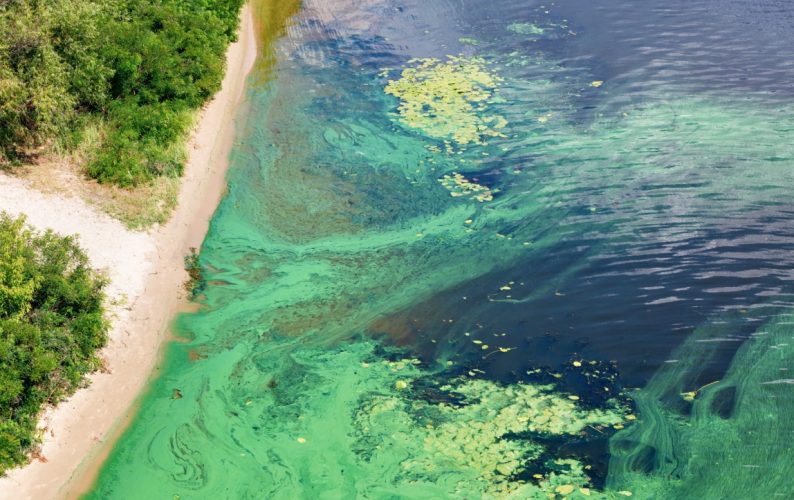
Microbes may be small, but they are highly impactful to environmental and human health amid a changing climate. The American Society for Microbiology (ASM) issued a new report, Microbes and Climate Change: Science, People, & Impacts, co-authored by David Karl, University of Hawai‘i at Mānoa oceanographer, and more than 30 experts from a multitude of varied disciplines, illuminating how microbes can help us adapt to climate change.
As major drivers of elemental cycles and producers and consumers of three of the gases responsible for 98% of increased global warming (carbon dioxide, methane and nitrous oxide), microbes have a pivotal impact on climate change and are, in turn, impacted by it. To fully understand how to adapt to climate change, it is critical to learn how our changing climate will impact microbes and how they relate to humans and the environment.
“It has been said that the very great is achieved by the very small,” said Karl. “Micobes matter!” Since 1988 Karl and his colleagues have been tracking changes in the ecology of marine microbes in response to climate change at UH’s deep sea observatory, Station ALOHA.
The World Health Organization identified climate change as “single biggest health threat facing humanity in 2021,” having adverse impacts on water quality, food security and global economies. Additionally, a recent report from the Intergovernmental Panel on Climate Change (IPCC) found changes to Earth’s climate in every region of the world, noting the unprecedented scale and speed in warming of the planet’s surface over the last 200 years.
“ASM’s new colloquium report underscores that in the quest to find solutions for climate change, we, as a society and scientific community, have new opportunities to use microbes to our benefit,” said Nguyen K. Nguyen, Director of ASM’s American Academy of Microbiology.
This report is the outcome of ASM’s November 2021 colloquium meeting, which brought together more than 30 experts from a multitude of varied disciplines and sectors who provided multifaceted perspectives and insights. The American Academy of Microbiology, the honorific leadership group and think tank within ASM, convened the colloquium.
Karl, who is also the director of the Center for Microbial Oceanography: Research and Education (C-MORE) in the UH Mānoa School of Ocean and Earth Science and Technology, was a key participant in the colloquium and contributed to the report. He was also an author on the companion paper, Microbes and Climate Change, a Research Prospectus for the Future, published this week in ASM’s open-access journal, mBio. The mBio paper builds on concepts discussed at the November colloquium meeting and provides an extended view and opinions on research needed to fill in the knowledge gaps.
The microbial sciences can provide us with invaluable insights in how to adapt to climate change and its cascading effects. From developing alternative fuels to preventing the spread of pathogens, the applications of microbes are vast and far-reaching. The report details major recommendations for researchers, policymakers and regulators.
Key report recommendations:
To learn more about the impact of microbes on climate change, visit the American Society for Microbiology’s Microbes and Climate Change resource page and read the article, What Microbes Can Teach Us About Adapting to Climate Change.
Original article written by Marcie Grabowski for SOEST News.